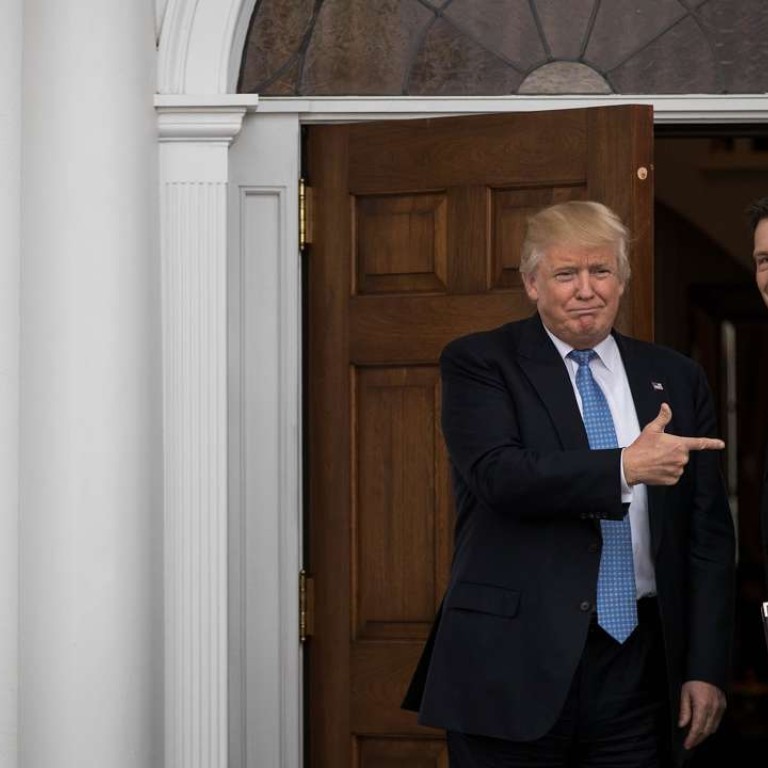
Trump cabinet contender accidentally exposes hardline anti-immigrant proposals
One of the possible candidates to serve in Donald Trump’s cabinet has been photographed carrying documents into a meeting with the president-elect that outlined aggressive proposals to bar the entry of Syrian refugees and reinstate a national registry focused on Muslims.
Kris Kobach, currently the secretary of state of Kansas, met with Trump in Bedminster, New Jersey, on Sunday as part of an ongoing series of conversations aimed at filling key roles in the pending administration.

A closer look at the papers revealed the“Department of Homeland Security Kobach Strategic Plan for First 365 Days”. At the top of Kobach’s list of recommendations was to “bar the entry of potential terrorists” and to both update and re-implement a programme instituted by the Bush administration after the September 11 attacks that tracked individuals from “high-risk areas” of the world.
Known as the National Security Entry-Exit Registration System (NSEERS), the program was based on the country from which an individual migrated but was widely regarded by the media at the time as a Muslim registry. Kobach, who served in the justice department under Bush, was a chief architect of NSEERS.
Although Trump’s team has denied that the president-elect supports a Muslim registry, as a candidate he repeatedly expressed his openness to the idea on the campaign trail. He emphasised the need for a database of Syrian refugees, but refused on multiple occasions to rule out a Muslim registry when presented with the question.
Reince Priebus, the former chairman of the Republican National Committee who was recently appointed as Trump’s chief of staff, also declined to explicitly rule out a Muslim registry during an interview on Sunday.
“I’m not gonna rule out anything,” Priebus said while on NBC’s Meet the Press, “but we’re not gonna have a registry based on a religion.”
Trump’s surrogates have sought to frame the database under consideration as focusing on specific countries, as opposed to a religion. But if built in the likeness of NSEERS, it would focus on Muslim-majority countries.

Kobach’s plan, the photograph revealed, also included “extreme vetting questions for high-risk aliens”, such as whether they “support Sharia law, jihad, equality of men and women, [and] the United States Constitution”. Trump similarly embraced an ideological test for Muslims seeking entry into the US while campaigning for president.
The appointees named by Trump thus far share a record of statements that cast scrutiny on Muslims at a minimum and in other cases peddle outright Islamophobia.
Retired Lt Gen Michael Flynn, tapped by Trump as his national security adviser, has said “fear of Muslims is rational” and likened Islam to “a cancer”. Jeff Sessions, the Alabama senator nominated by Trump to serve as attorney general, argued that the Muslim ban advocated by Trump was constitutional.
And Mike Pompeo, Trump’s choice to head the CIA, has taken aim at Islamic leaders for being “complicit” in terrorism by refusing to reject it, even though Muslim clerics and organisations have regularly condemned acts of terror.

